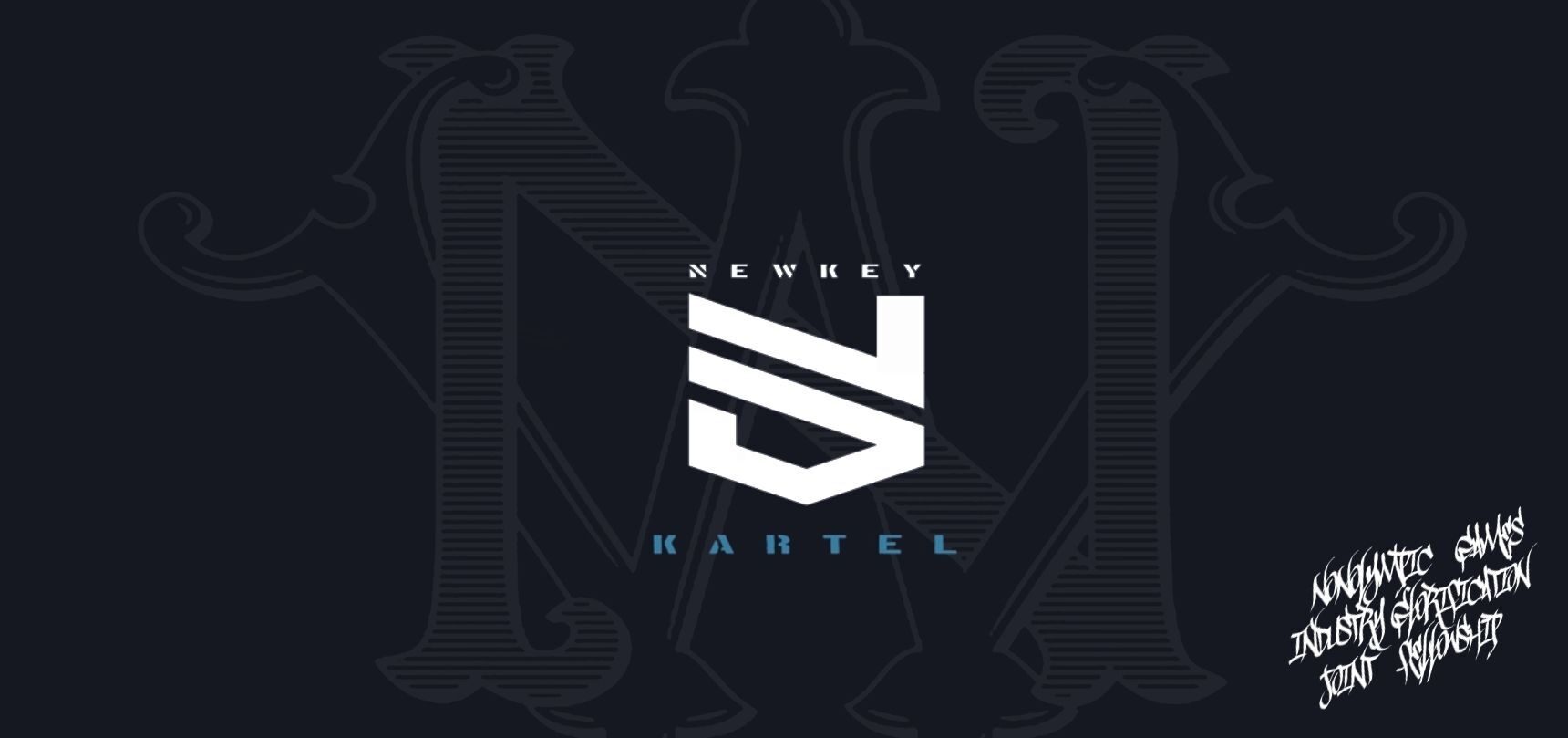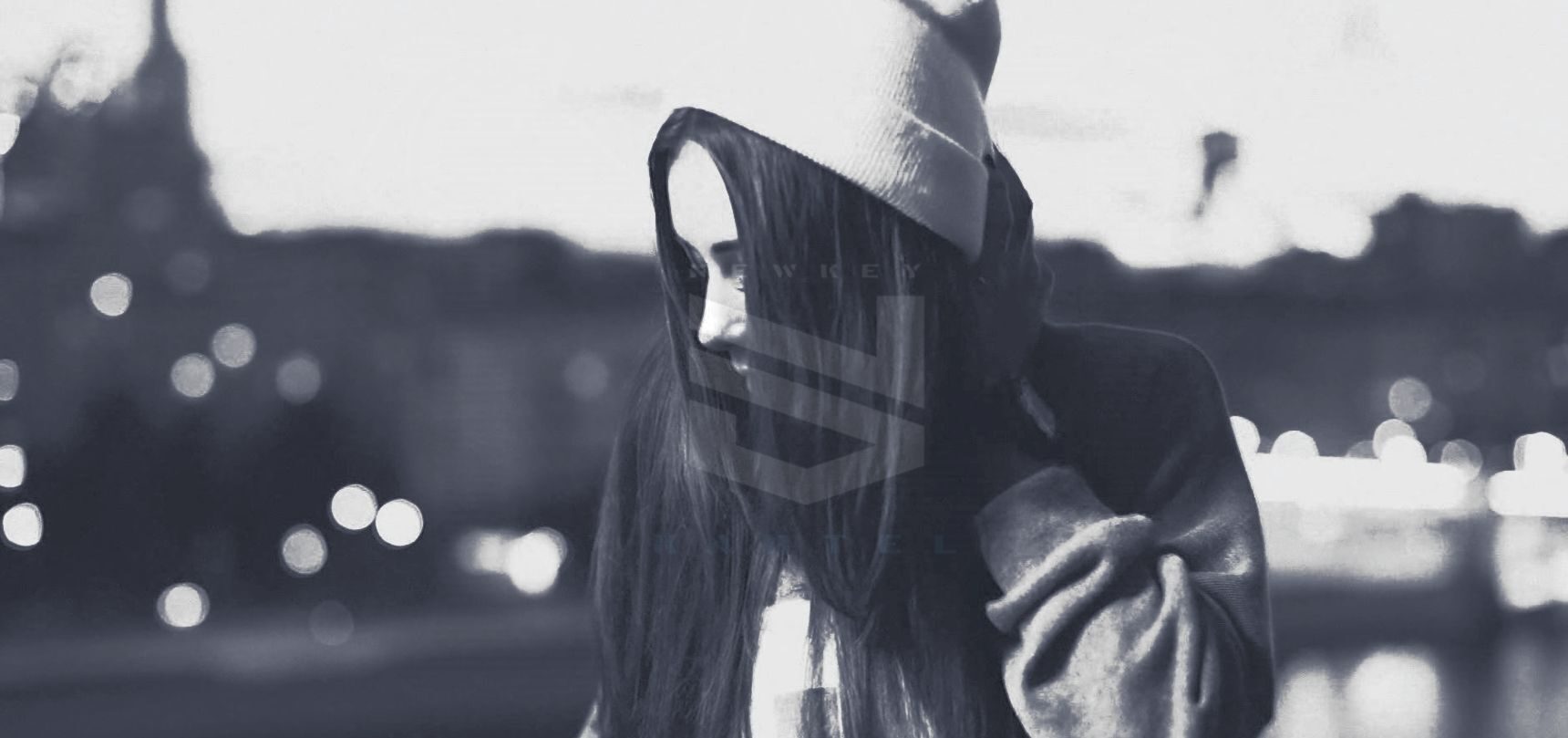легендаhistory
Мы те, кто решили, что должно быть что-то ещё. Мы те, кто не принимает мэйнстрим. Попсу, которая ворует саму суть и извращает её. Нас много и мы везде. Мы - Алтернатива! Мы - Андеграунд.
We are the ones who decided that there must be something else. We are those who do not accept the mainstream. Pops, who steals the very essence and perverts it. We are many and we are everywhere. We are an alternative! We are the Underground.

решай сам как дальше...
decide for yourself how to go further ...
-
Всё началось ещё в прошлом тысячелетии. Примерно в 1980 годах. Юный спортсмен, невнятного тогда вида спорта - сноубординг, Лех посетил страны соцлагеря, а именно: Советскую Польшу и Советскую Россию, а затем Японию и США. Москва, Сталинград, Сочи, Кишинёв, Киев, Минск, Таллин, Рига, Вильнюс, Варшава – так его встречали крупные города запада и Союзной Красной России. Преисполненный восторга от безкрайних просторов, молодой сноубордист отправился с головой в капиталистический рай Японии и США. Так вышло на его беду, что в 1980ых годах в странах соцлагеря был пик их развития, а капиталистический запад был в мятежах, бунтах, забастовках... ну плюс ещё в США рабство не отменили...
Everything started in the last millennium. Approximately in the 1980s. Young athlete, slurred sport - snowboarding, Lech Pittiplamenen visited the socialist camp countries, and in the name of Soviet Poland and Soviet Russia, and then Japan and the United States. Moscow, Stalingrad, Sochi, Chisinau, Kiev, Minsk, Tallinn, Riga, Vilnius, so it was met by the large cities of the west of the Union Red Russia. Enthusiastic delight from the vast expanses of a young snowboarder went headlong into the capitalist paradise of Japan and the United States. So it turned out that, in the 1980s, the countries of the socialist camp had the peak of their development, and the capitalist West was in protests, riots, strikes ... well, plus slavery was not abolished in the USA...
Вернувшись домой, Лех решил создать справедливое общество индустрии экстремальных видов спорта на основе трушных понятий, как ему казалось. И с группой своих соратников они создали команду из разных субкультурщиков - музыка, спорт, искусство, граффити, брейк данс - всё не формат. Так появился первый проект PioneerSnowboarding, задачей которого было вызвать уважение к представителям Субкультуры в целом, а в частности к Сноубордистам, как к спортсменам Высшего Уровня.
Returning home, Lech decided to create a fair society of the industry of extreme sports on the basis of trivial concepts, as it seemed to him. And with a group of their associates, they created a team of different subculturists - music, sports art, graffiti, break dance - all the non-format. So there was the first project PioneerSnowboarding - The purpose of which was to cause respect for the representatives of the Subculture in general, and in particular to the Snowboarders as to the top level proctors.
Но в то время всем было кучей класть на каких-то борцов за справедливость и уважение. Официальный Олимпийский Комитет и весь культурный мэйнстрим, весь и в музыке и в кино полным ходом осваивал кокаин, гомосексуализм и возможность продавать всё что можно и нельзя.... Так что всем было класть...
But at that time it was all a bunch to put on some fighters for their dignity and respect. The official Olympic Committee and the whole cultural mainstream, all at once in music and in the cinema at full speed mastered cocaine, homosexuality and the opportunity to sell everything that can and can not be .... So it was all put...
Прошло время, и Лех основал Картель по аналогии любой подобной тайной организации. Членов, участников, сподвижников и единомышленников становилось всё больше, но в отличии от мэйнстрима, все представители находились в андеграунде, в подполье. Знающий мог их узнать по стилю, образу жизни и поведения... все они настоящие, трушные от ушей и до пят и топят за культуру за субкультуру. Они популярны - да очень. Они пафасны - нет, не в коем случае. И однажды на вершине Эльбруса к Леху подошел горный Бобёр и сказал:
- Братан не сиди на камне, а то зад отмерзнет....
А потом добавил...
- Когда пройдет год с небольшим как Клитори Хилтон крупно облажается, и на её город упадут морозы, пора будет выйти из тени.
Лех в тот день на бигэире придумал пару новых трюков и не придал значение словам Бобра... Чё, он же Бобёр всего лишь... чего ему знать... Но спустя годы Клитори Хилтон - облажалась, а спустя ещё год её город в снегах. Лех вспомнил Бобра. Бобёр уже не помнил Леха. Но теперь Лех точно знал, о чём говорил ему тогда на вершине Эльбруса тот горный пророк.
И наследники Леха выходят из тени! Что бы показать, где тру, а где не тру!
Спасибо Бобру!Так зарождался стиль!
Time passed and Lech founded Cartel by analogy of Masson lodges or the UN or any similar organization. Members, members, associates and co-thinkers became more and more, but unlike the mainstream, all the representatives were in the underground, underground. Knower could know them by style, way of life and behavior ... they are all real, trashy from the ears to the heels and stoked for culture for the subculture. They are popular - yes very much so. They are pufatny - no, not in any way. And one day on the top of Elbrus to Leh came the mountain Beaver and said:
- The brother does not sit on a rock, and then the back will freeze .... And then he added ... when the year with a little Clitori Hilton is overdrawn and the city gets cold, it's time to get out of the shadows.
Leh that day on bigair invented a couple of new tricks and did not attach importance to the words of the Beaver ... Che he Beaver is just ... what to know ... But after years of Clitori Hilton - screwed up, and after another year her city in the snow . Leh remember Beaver. Beaver no longer remembered Lech. But now Lech knew exactly what the mountain prophet was telling him at the top of Mount Elbrus.And the heirs of Lech come out of the shadows! What would show where the rub, and where not rubbish!
Thank you Beaver!
So the style was born!
-
Дружок, ты уже в альтернативе... какой ещё нахрен альтернативный путь... альтернатива... - иди в спортмастер или как там у вас эта дыра зовётся... включи популярную музыку... короче будь как все! Одинаково никаким! Будь Никакой! Чё нормальная альтернатива? Лайкнуть за дерзость не забудь! Это тут ценят мощно! Я серьёзно! Альтернативный путь!!!
Boy you are already in the alternative ... what the fuck is the alternative way ... alternative ... - go to the sportsmaster or whatever you have this hole called ... include popular music ... shorter be like everyone else! Equally non-existent! Be not! What is the normal alternative? Like up for insolence do not forget! This is appreciated here powerfully! I'm serious! An alternative way!!!
-
Да нужно было написать такое красивое... ну как любят все гнать по западным стандартам....
Типа как Бёртон затирает - Джейк Бертон Карпентер основал Burton Snowboards из своего амбара в Вермонте в 1977 году и с тех пор посвятил свою жизнь сноуборду. Бертон сыграл ключевую роль в повышении сноубординга с хобби на заднем дворе до мирового класса, создав новаторские продукты, поддерживая лучших гонщиков мира и предлагая больше курортов для сноубординга.
Какого нахрен амбара!? Из амбара он основал - красавец - амбарный миллиардер!Или как Нитро Сёркас - С скромных начал, с Джереми Роллом, Греггом Годфри и суперзвездой спортивного спорта Трэвисом Пастраной, производящим DVD-диски из гаража в штате Юта в 2003 году, Nitro Circus взорвался мировой популярностью, оставив жгучее впечатление на умах молодых людей по всей планете.
Гараж... ещё один Бэкстритбой со жгучим впечатлением в умах... за ваши бабки... без проблем!Всем понятно, что это сопли для бедных... И Пастране класть, что там написано... вся эта муть – это набор слов, что бы поглубже лизнуть своему покупателю. Как бы обязательная часть программы по обслуживания клиента. Короче красивые сказки под плюшки с чаем!
Yes, it was necessary to write such a beautiful ... well, like everyone likes to drive by Western standards ....
such as Burton wipes - Jake Burton Carpenter founded Burton Snowboards from his barn Vermont in 1977 and has since dedicated his life to snowboarding. Burton played a key role in raising snowboarding from a hobby in the backyard to the world class, creating innovative products, supporting the best riders in the world and offering more resorts for snowboarding.
What a fucking barn !? From the barn he founded - a handsome man - a barny billionaire!
Or as Nitro Surkas - With humble beginnings, with Jeremy Roll, Gregg Godfrey and sports superstar Travis Pastrana, who produces DVDs from a garage in Utah in 2003, Nitro Circus exploded worldwide, leaving a burning impression on the minds of young people throughout the world planet.
Garage ... one more Backstreet with burning in typing in minds ... for your money .. no problem!
Everyone understands that this is a snot for the poor ... And put the Poatraine, what is written there ... all this stuff is a set of words that would deepen to lick your buyer. As though a mandatory part of the program for customer service. In short, beautiful fairy tales for buns with tea!
-
В одной деревне жила женщина с сыном. Сына звали Ётаро. Он был тихий и послушный мальчик: не шалил, не проказил, старался всем услужить, но только был очень недогадлив.
Однажды мать сказала ему:
– Ётаро, я пойду на речку бельё полоскать, а ты посмотри за рыбой. Она на кухне, а там сидит кот.
Мать взяла корзину с бельём и пошла на речку. А Ётаро сейчас же побежал на кухню, посмотрел по сторонам и увидел на полке блюдо с рыбой.
«Не могу я сидеть, задрав голову, и всё время смотреть на полку! – подумал Ётаро.– Лучше поставлю блюдо на пол».
Ётаро так и сделал: поставил блюдо с рыбой на пол, а сам уселся рядом и не моргая стал смотреть на рыбу. Про кота он и забыл. А кот в это время подкрадывался к рыбе всё ближе и ближе. Подобрался к самому блюду, ухватил лапой рыбью голову и стащил её на пол. Ётаро и не пошевелился. Кот съел рыбью голову, стащил с блюда рыбий бок и тоже съел. Так понемногу он съел всю рыбу. На блюде остался один только рыбий хвост.
Наевшись досыта, кот отошёл в сторону, свернулся в клубок и уснул.
«Вот теперь мне и смотреть не на что! – подумал Ётаро. – Рыбы на блюде больше нет. Пойду-ка я во двор, погуляю немножко».
Ётаро выбежал из дому, а навстречу ему мать с бельём.
– Ётаро, что ты делаешь во дворе? – спросила мать. – Я же тебе велела смотреть за рыбой.
– Я и смотрел.
– Отчего же ты убежал из кухни?
– А мне больше не на что было смотреть. От рыбы один хвост остался.
– А где же вся рыба?
– Кот съел.
– А ты что делал?
– А я на рыбу смотрел. Ты велела мне смотреть, я и смотрел.
– Ах, какой ты у меня глупый! – сказала мать. – Как ты не догадался крикнуть коту «брысь». Кот бы убежал, и рыба осталась бы цела.
– Верно, – сказал Ётаро.– В другой раз буду умнее.
На другое утро мать сказала:
– Ётаро, сходи на огород, посмотри, поспела ли редька. Да заодно погляди, не едят ли гусеницы капусту.
Ётаро сейчас же побежал в огород. Видит, редька и в самом деле поспела. Уже кое-где из земли торчат белые головки. Зато капуста вся изъедена. На листьях её сидят большие зелёные гусеницы.
Ётаро посмотрел на гусениц и подумал:
«Теперь-то я знаю, что мне делать. Надо прогнать гусениц с капусты».
И он закричал во весь голос:
– Брысь! Брысь!
Гусеницы и не пошевелились.
– Брысь! – ещё громче крикнул Ётаро.
Но, как он ни кричал, гусеницы спокойно сидели на листьях. Ётаро заплакал и побежал к матери.
– Чего ты плачешь? – спросила мать.
– Как же мне не плакать? Гусеницы едят нашу капусту. Я кричал им «брысь, брысь», а они не слушаются.
– Какой ты глупый! – сказала мать. – Разве гусеница и кошка одно и то же? Надо было убить их, вот и всё.
– Верно, – сказал Ётаро. – В другой раз буду умнее.
В тот же день после обеда Ётаро сказал матери:
– Сегодня у нас в деревне представление – борцы приехали. Можно мне пойти посмотреть на них?
– Можно, – ответила мать. – Только не толкайся в толпе и веди себя повежливее.
Ётаро обрадовался и побежал к деревенскому храму. Там во дворе уже шло представление. Посреди двора был выстроен дощатый помост, и на нём боролись два больших, толстых человека. Вокруг помоста толпились зрители. Вся деревня сбежалась на представление, и поэтому во дворе было очень тесно и жарко. У всех зрителей в руках были круглые бумажные веера, разукрашенные чёрными знаками. Веера тихо шелестели, и по всему двору проносился лёгкий ветерок.
Ётаро пришёл поздно и оказался в самом конце двора. Ему ничего не было видно, кроме затылков и спин зрителей. От нечего делать он стал рассматривать затылки. И тут он увидел розовую, блестящую, будто покрытую лаком, лысину. На самой её середине на единственном волоске сидела большая чёрная муха.
«Муха сидит на лысине совсем как гусеница на капусте, – подумал Ётаро. – Она съест последний волос старика. Надо её поскорее убить. Это будет очень вежливо».
Ётаро высоко поднял свой веер и хлопнул старика по затылку. Муха сейчас же перелетела на голову другого соседа. А старик охнул и обернулся. Увидев Ётаро, он сердито закричал:
– Как ты смеешь драться, негодный мальчишка! И, размахнувшись, он больно ударил Ётаро по щеке.
Ётаро заплакал, щека у него вздулась и покраснела. С плачем выбрался он из толпы и побежал домой к матери.
– Что ты так рано вернулся? – удивилась мать.
– Из-за моей вежливости меня побили, – сказал Ётаро. – Я хлопнул одного старика по голове веером, чтобы убить муху, а он рассердился и поколотил меня.
– Ах, какой ты глупый! – сказала мать. – Зачем же ты хлопнул старика по голове? Надо было помахать веером, муха бы и улетела.
– Верно, – сказал Ётаро. – В другой раз буду умнее.
На другой день в деревне случился пожар. Ётаро никогда в жизни не видел пожара и побежал со всех ног смотреть, как горит дом. Ещё издали он увидел жёлтое пламя в густом чёрном дыму. По всей улице бегали и суетились люди. Ётаро добежал до горящего дома и остановился на другой стороне улицы.
Вдруг раздался грохот, и во все стороны полетели искры: это обвалилась горящая балка. Одна искра перелетела через улицу и упала на бумажное окно, у которого стоял Ётаро.
– Ой, ой! – закричал Ётаро. – Надо прогнать искру, а то от неё загорится весь дом.
Он вытащил из-за пояса веер и стал махать им изо всей силы. От этого искра ещё сильнее разгорелась и бумага начала тлеть.
Люди, которые жили в доме, заметили, что бумага у них на окне дымится, испугались и выбежали на улицу.
Тут они увидели Ётаро, который стоял у окна и раздувал веером огонь. Люди так рассердились на него, что вырвали у него из рук веер и хорошенько отколотили Ётаро. А загоревшуюся бумагу сейчас же залили водой.
Испуганный и заплаканный, Ётаро поплёлся домой.
– Что с тобой случилось? – спросила мать, увидев заплаканного сына.
– Меня опять побили, – сказал Ётаро, плача. – Я хотел согнать искру с бумажного окна, чтобы не загорелся дом, и стал махать на неё веером, а у меня отняли веер и поколотили.
– Ну и глупый же ты, – сказала мать. – Разве можно тушить искру веером? Огонь надо заливать водой.
– Это верно, – ответил Ётаро. – В другой раз буду умнее.
На следующий день утром Ётаро пошёл погулять. Он дошёл до самого края деревни. А на краю деревни стояла кузница. Дверь в неё всегда была открыта настежь, а внутри целый день полыхало пламя. Перед огнём раскачивались взад и вперёд два парня. Они били по раскалённому железу молотами на длинных ручках. Когда молот ударял по железу, во все стороны сыпались искры.
Ётаро остановился перед дверью и заглянул внутрь.
– Опять пожар! – обрадовался Ётаро. – Ну, теперь я знаю, что делать.
Он набрал полное ведро воды и вылил его в огонь. Кузнецы сначала только рты разинули. А когда вода в пламени зашипела, они набросились на Ётаро, надавали ему тумаков и вытолкали на улицу. С громким плачем побежал он домой.
– Что опять случилось? – спросила мать.
– Опять побили меня, – сказал Ётаро. – Я проходил мимо кузницы, а там горел огонь и сыпались искры, совсем как на пожаре. Я хотел залить огонь водой, как ты мне велела, а кузнецы рассердились и побили меня.
– Ну и глупый же ты! -сказала мать. -Ведь в кузнице огонь нужен для работы. Разве ты не видел, как там кузнецы бьют молотами по железу? Уж если ты хотел им помочь, так делал бы то же, что и они.
– Верно, – сказал Ётаро.– В другой раз буду умнее.
Через два дня, когда царапины и синяки у Ётаро зажили, он пошёл опять гулять. Только отошёл он от дома, как увидел двух парней, которые колотили друг друга палками.
«Надо им помочь!» – подумал Ётаро.
Он поднял с земли толстую суковатую палку и что есть силы ударил сначала одного, потом другого парня по голове.
Парни сейчас же перестали драться, и оба накинулись на Ётаро. Они были старше и сильнее его, да к тому же их было двое. Они так больно избили Ётаро, что он еле дотащился до дому.
– Что с тобой? – спросила мать. – Опять тебя побили?
– Опять, – сказал Ётаро. – Я увидел на улице двух парней. Они били друг друга палками. Я стал им помогать, а они оба вдруг набросились на меня и давай меня колотить.
Мать только рукой махнула:
– До чего же ты глуп, Ётаро! Ведь тут надо было не помогать, а разнимать.
– Верно, – сказал Ётаро. – В другой раз буду умнее.
Семь дней после этого сидел Ётаро дома, боялся показаться на улицу. Но на восьмой не утерпел и пошёл погулять.
Вышел он на улицу и видит: посреди дороги грызутся две собаки.
Ётаро остановился и закричал:
– Перестаньте драться!
Собаки его, конечно, не послушались. Тогда Ётаро подбежал к ним, ухватил их обеих за хвосты и стал растаскивать в разные стороны. Собаки ещё больше рассвирепели, зарычали и вцепились бедному Ётаро в икры. Если бы прохожие не подоспели на помощь, собаки разорвали бы его в клочья.
Едва живой вернулся Ётаро к матери.
Мать посмотрела на него и ничего уж больше не сказала.
Дурака учить – только время терять.
In one village lived a woman with her son. His son's name was Yotaro. He was a quiet and obedient boy: he did not play tricks, he did not leaven, he tried to please everyone, but only was very slow-witted.
One day the mother said to him:
- таtaro, I'll go to the river to rinse the linen, and you look at the fish. She's in the kitchen, and there's a cat sitting there.
Mother took a basket with linen and went to the river. And Yataro immediately ran to the kitchen, looked around and saw on the shelf a dish of fish.
"I can not sit, looking up, and all the time looking at the shelf! "Better put the dish on the floor."
Yotaro did this: put the dish with the fish on the floor, and he sat down next to him and without blinking began to look at the fish. About the cat, he forgot. And the cat at this time creeping closer to the fish. I got to the dish, grabbed a fish's head with my paw and pulled it to the floor. Yotaro did not move. The cat ate the fish's head, pulled off the fish's side and ate it too. So little by little he ate all the fish. Only the fish tail remained on the dish.
After eating enough, the cat went to one side, curled into a ball and fell asleep.
"Now there's nothing for me to look at! Thought Yataro. - There is no more fish on the dish. I'll go to the yard, walk a little. "
Yataro ran out of the house, and his mother with linen met him.
"Yotaro, what are you doing in the yard?" The mother asked. "I told you to watch the fish."
- I looked.
"Why did you run away from the kitchen?"
- And I had nothing more to look at. One tail remained from the fish.
"Where's the fish?"
"The cat ate."
- And what did you do?
- And I looked at the fish. You told me to look, I watched.
"Oh, how stupid you are!" Said the mother. "How could you not have told the cat to scream." The cat would run away, and the fish would remain intact.
"That's right," said Yotaro. "Another time, I'll be smarter."
The next morning the mother said:
- Yataro, go to the garden, see if the radish ripened. Yes, at the same time look, do not eat caterpillars cabbage.
Yataro immediately ran into the garden. He saw that the radish had really ripened. Here and there white heads stick out of the ground. But the cabbage is completely eroded. On the leaves of her sit large green caterpillars.
Yotaro looked at the caterpillars and thought:
"Now I know what to do. We must drive the caterpillars off the cabbage. "
And he cried out at the top of his voice:
- Fuck off! Get out!
The caterpillars did not move.
- Fuck off! Shouted Yotaro even more loudly.
But, no matter how he shouted, the caterpillars sat quietly on the leaves. Yataro burst into tears and ran to his mother.
"Why are you crying?" The mother asked.
"How can I not cry?" Caterpillars eat our cabbage. I shouted to them "shove, shave," and they do not obey.
"How stupid you are!" Said the mother. - Is the caterpillar and the cat the same? It was necessary to kill them, that's all.
"That's right," said Yotaro. "Another time, I'll be smarter."
On the same day after dinner, Yotaro said to his mother:
"Today, in our village, the idea is that the wrestlers have arrived." Can I go and look at them?
"You can," said her mother. - Just do not push in the crowd and behave politely.
Yotaro was delighted and ran to the village church. There was already a performance in the courtyard. In the middle of the courtyard a wooden platform was built, and two large, fat people fought on it. The audience was crowded around the platform. The whole village ran to the show, and so it was very crowded and hot in the courtyard. All spectators in their hands had round paper fans, decorated with black signs. The fans rustled softly, and a light breeze swept through the whole courtyard.
Yataro came late and was at the very end of the yard. He could see nothing, except the back of the head and the back of the audience. With nothing to do he began to examine the back of his head. And then he saw a bald patch of pink, shiny, as if varnished. At its very center, on the only hair was a big black fly.
"The fly sits on its bald head just like a caterpillar on a cabbage," thought Yataro. "She'll eat the old man's hair." We must kill her as soon as possible. It will be very polite. "
Yotaro raised his fan high and slapped the old man on the back of his head. The fly immediately flew to the head of another neighbor. And the old man gasped and turned. When he saw Yotaro, he shouted angrily:
"How dare you fight, you worthless boy!" And, swinging, he painfully hit Yotaro on the cheek.
Yataro started to cry, his cheek was swollen and red. With tears he got out of the crowd and ran home to his mother.
"Why are you back so early?" - Mother was surprised.
"Because of my courtesy, they beat me," said Yotaro. - I slapped an old man on the head with a fan to kill a fly, and he got angry and beat me.
"Oh, how stupid you are!" Said the mother. "Why did you slap the old man on the head?" It was necessary to wave a fan, the fly would fly away.
"That's right," said Yotaro. "Another time, I'll be smarter."
The next day a fire broke out in the village. Yotaro never saw a fire in his life and ran all the way to watch the house burn. Still from a distance he saw a yellow flame in thick black smoke. People were running and running all over the street. Yotaro ran to the burning house and stopped on the other side of the street.
Suddenly there was a roar, and in all directions sparks flew: it collapsed burning beam. One spark flew across the street and fell on the paper window, where Yotaro stood.
- Oh oh! Shouted Yataro. - It is necessary to drive away the spark, otherwise the entire house will light up from it.
He pulled a fan from behind his belt and began to wave it with all his might. This spark sparked even more and the paper began to smolder.
The people who lived in the house noticed that the paper was smoking on the window, they were frightened and ran out into the street.
Then they saw Yotaro standing by the window and fanning the fire. People were so angry with him that they snatched the fan out of his hands and beat Otar carefully. And the burning paper was immediately flooded with water.
Frightened and tearful, Yotaro went home.
- What happened to you? - asked his mother when he saw his crying son.
"They beat me again," said Yotaro, crying. - I wanted to drive the spark from the paper window, so that the house did not catch fire, and began to wave at her like a fan, and my fan was taken away and beaten.
"You're stupid, too," said her mother. - Is it possible to extinguish a spark with a fan? Fire must be filled with water.
"That's right," said Yotaro. "Another time, I'll be smarter."
The next day in the morning, Yataro went for a walk. He reached the very edge of the village. And on the edge of the village stood a smithy. The door to it was always open wide, and inside the whole day the flames burned. Before the fire, two guys were rocking back and forth. They beat the hot iron with hammers on long handles. When the hammer struck the iron, sparks flew in all directions.
Yataro stopped in front of the door and peered inside.
"It's a fire again!" Ётаро was delighted. "Well, now I know what to do."
He took a full bucket of water and poured it into the fire. The blacksmiths at first only opened their mouths. And when the water in the flames hissed, they pounced on Yotaro, pushed him into the cuffs and pushed him out into the street. With a loud cry he ran home.
- What happened again? The mother asked.
"They beat me again," said Yotaro. "I passed by the smithy, and there was a fire burning and sparks, just like a fire. I wanted to fill the fire with water, as you told me, and the blacksmiths became angry and beat me.
- Well, you're stupid! said the mother. -You need a fire in the smithy for work. Have not you seen how the smiths strike the iron with hammers? If you wanted to help them, you would do the same as they did.
"That's right," said Yotaro. "Another time, I'll be smarter."
Two days later, when the scratches and bruises of Yotaro recovered, he went on a walk again. Only he left the house, as he saw two guys who were beating each other with sticks.
"We must help them!" Thought Yotaro.
He picked up a thick knotted stick from the ground and that there was a force hit first one, then the other guy on the head.
The guys immediately stopped fighting, and both attacked Yotaro. They were older and stronger than him, and besides there were two of them. They beat Yotaro so painfully that he hardly dragged himself home.
- What happened to you? The mother asked. "Have they beaten you again?"
"Again," said Yotaro. - I saw two guys on the street. They beat each other with sticks. I began to help them, and they both suddenly attacked me and let me pound.
Mother only waved her hand:
"You're so stupid, Etoaro!" After all, it was necessary not to help, but to separate.
"That's right," said Yotaro. "Another time, I'll be smarter."
Seven days after that, Yotaro was at home, afraid to show himself on the street. But on the eighth he could not restrain himself and went for a walk.
He went out into the street and saw: in the middle of the road two dogs were bawling.
Таaro stood still and shouted:
"Stop fighting!"
His dogs, of course, did not listen. Then Yataro ran up to them, grabbed them both by the tails and began to pull them in different directions. The dogs became even more furious, growled and grabbed poor Eataro in caviar. If passers-by did not come to the rescue, the dogs would tear it to shreds.
As soon as alive, Yotaro returned to his mother.
Mother looked at him and did not say anything else.
To teach a fool is just a time to lose.
-
НьюКей Картель
союз продвижения субкультурных индустрий.Организационный тип Картеля
саморегулируемая организация, некоммерческое партнерство общественной инициативы развития субкультурных отраслей.NewKey Kartel
subcultural industry glorification joint fellowship.Organizational type
public initiative self-regulating organization noncommercial partnership of professional development of extra-cultural branches.Саморегулируемые организации
некоммерческие организации, объединяющие субъекты предпринимательской деятельности, работающие в определённой отрасли производства товаров (работ, услуг), либо объединяющие субъекты профессиональной деятельности определённого вида.В России порядок образования и деятельности саморегулируемых организаций (СРО), их основные цели и задачи регулируются Законом N 315-Ф3 от 1 декабря 2007 года «О саморегулируемых организациях», а также федеральными законами, регулирующими соответствующий вид деятельности. Деятельность СРО, объединяющих организации финансовых рынков, регулируется отдельным законом «О саморегулируемых организациях в сфере финансового рынка» N 223-ФЗ от 13 июля 2015 года.
Саморегулируемой организацией признаётся некоммерческая организация, созданная в соответствии с Гражданским кодексом Российской Федерации и Федеральным законом от 12 января 1996 года N 7-ФЗ «О некоммерческих организациях», при условии её соответствия всем требованиям, установленным законом «О саморегулируемых организациях».
Self-regulating organizations
non-profit organizations that unite the subjects of entrepreneurial activity, working in a certain industry of production of goods (works, services), or uniting subjects of professional activity of a certain type.In Russia, the procedure for the formation and activities of self-regulating organizations (SROs), their main goals and tasks are regulated by Law No. 315-F3 of December 1, 2007 "On Self-Regulating Organizations", as well as federal laws regulating the relevant type of activity. The activities of SROs, which unite organizations of financial markets, are regulated by a separate law "On Self-Regulating Organizations in the Sphere of the Financial Market" No. 223-FZ of July 13,
A self-regulating organization is a non-profit organization established in accordance with the Civil Code of the Russian Federation and Federal Law No. 7-FZ of January 12, 1996 "On Non-Profit Organizations," provided that it meets all the requirements established by the law "On Self-Regulating Organizations".
Некоммерческое партнерство
организация, не имеющая в качестве основной цели своей деятельности извлечение прибыли и не распределяющая полученную прибыль между участниками. Некоммерческие организации могут создаваться для достижения социальных, благотворительных, культурных, образовательных, политических, научных и управленческих целей, в сферах охраны здоровья граждан, развития физической культуры и спорта, удовлетворения духовных и иных нематериальных потребностей граждан, защиты прав, законных интересов граждан и организаций, разрешения споров и конфликтов, оказания юридической помощи, а также в иных целях, направленных на достижение общественных благ.Некоммерческие организации вправе заниматься предпринимательской деятельностью, только если данная деятельность направлена на достижение целей организации. В российском законодательстве основанная на членстве некоммерческая организация, учрежденная гражданами и (или) юридическими лицами для содействия её членам в осуществлении деятельности, направленной на достижение социальных, благотворительных, культурных, образовательных, научных и управленческих целей. Деятельность некоммерческих партнёрств в России регулируется статьёй 8 Федерального закона «О некоммерческих организациях»
Non-commercial partnership
an organization that does not have as its main objective the extraction of profit and does not distribute the profits among the participants. Non-commercial organizations can be created to achieve social, charitable, cultural, educational, political, scientific and managerial goals, in the areas of protecting citizens' health, developing physical culture and sports, meeting the spiritual and other non-material needs of citizens, protecting the rights, legitimate interests of citizens and organizations, resolution of disputes and conflicts, provision of legal assistance, as well as for other purposes aimed at achieving public goods.Non-profit organizations have the right to engage in entrepreneurial activities only if this activity is aimed at achieving the organization's goals. In the Russian legislation, a non-profit organization based on membership established by citizens and (or) legal entities to assist its members in carrying out activities aimed at achieving social, charitable, cultural, educational, scientific and managerial goals. The activities of non-commercial partnerships in Russia are governed by Article 8 of the Federal Law "On Non-Profit Organizations"
Движение Общественой Инициативы
Правовое положение общественных движений в Российской Федерации закреплено Федеральным законом «Об общественных объединениях». В целом правовой статус общественного движения идентичен статусу общественной организации, за исключением отсутствия членства: вхождение лиц в участники общественного движения может не оформляться индивидуальными заявлениями или иными документами (если иное не определено уставом конкретного движения). Высшим руководящим органом общественного движения является съезд (конференция) или общее собрание.Также каждое движение должно иметь постоянно действующий руководящий орган общественного движения — выборный коллегиальный орган, подотчётный съезду (конференции) или общему собранию. Общественные движения, как и другие формы общественных объединений, могут регистрироваться в порядке, предусмотренном статьёй 21 Федерального закона «Об общественных объединениях», и приобретать права юридического лица, либо функционировать без государственной регистрации и приобретения прав юридического лица. В случае государственной регистрации общественного движения его постоянно действующий руководящий орган осуществляет права юридического лица от имени общественного движения и исполняет его обязанности в соответствии с уставом. Права общественных объединений (и, в том числе, общественных движений), закреплены в статье 27 закона «Об общественных объединениях».
В частности, предусматривается право участвовать в выборах и референдумах в порядке, установленном законодательством Российской Федерации. Общественно-полезными целями, которые преследуют общественные движения, могут быть: социальные, благотворительные, культурные, образовательные, научные, развития физической культуры и спорта, удовлетворения духовных и иных нематериальных потребностей граждан, а также иные цели, направленные на достижение общественных благ.
The Movement of the Public Initiative
The legal status of social movements in the Russian Federation is enshrined in the Federal Law "On Public Associations". In general, the legal status of a social movement is identical to the status of a public organization, with the exception of the absence of membership: the entry of persons into participants in the social movement may not be formalized by individual statements or other documents (unless otherwise specified by the charter of a particular movement). The highest governing body of the social movement is the congress (conference) or general meeting.Also, every movement must have a permanent governing body of the social movement - an elected collegial body accountable to the congress (conference) or general meeting. Social movements, like other forms of public associations, can be registered in accordance with the procedure provided for in Article 21 of the Federal Law "On Public Associations" and acquire the rights of a legal entity or operate without state registration and acquisition of the rights of a legal entity. In the case of state registration of a public movement, its permanent governing body exercises the rights of a legal entity on behalf of the public movement and fulfills its duties in accordance with the charter. The rights of public associations (and, in particular, of social movements) are enshrined in Article 27 of the Law on Public Associations.
In particular, the right to participate in elections and referendums is envisaged in the order established by the legislation of the Russian Federation. Socially useful goals pursued by social movements can be: social, charitable, cultural, educational, scientific, the development of physical culture and sports, the satisfaction of spiritual and other intangible needs of citizens, as well as other goals aimed at achieving public goods.
Субкультура "Неолимпийских Игр"
ряд социальных, спортивных, музыкальных и иных культурных отраслей выходящих за рамки стандартных общественных форм.Nonolimpic subculture
social, sports, cultural and other branches that go beyond the standard social forms.
Примерно так Картель и поставил своими задачами развитие индустрии неолимпийских игр и субкультурной индустрии в целом. Решая от площадок на заднем дворе до мирового класса, создавая новаторские продукты, поддерживая лучших райдеров мира, создавая восприятие и оставляя жгучее впечатление на умах молодых людей по всей планете. Раунд еба!


Approximately, the Kartel has set the goals for the development of the industry of non-Olympic games and the subcultural industry as a whole. Deciding from the backyard grounds to the world class, creating innovative products, supporting the best riders in the world, creating a perception and leaving a burning impression on the minds of young people around the planet. Round fck!





































